With relentless uncertainties surrounding CBD medical benefits and legislation plaguing both industry and consumer; we spoke with experts of the subject to aid us with our mission of Education.
 Richard Rose (The Hemp Nut) – RR:
Richard Rose (The Hemp Nut) – RR:
Since 1980 Richard has been a pioneer to the hemp movement. Serial award winner of natural foods and considered by many to be the face of hemp. Way ahead of times, Richard’s long term understanding to the value of hemp-derived products is becoming public knowledge. A Godsend to our industry
You can connect with Richard via LinkedIn, join his Facebook groups Medicinal Hemp Association and Hemp Flower Products Association. To anyone within the industry, “The consultant your consultant consults” is a must to be followed member of our community.
 Shanna Perry (Shannabis) – SP:
Shanna Perry (Shannabis) – SP:
For over a decade Shanna has been held with high regard to the cannabis industry. Her knowledge and expertise has enabled her to serve as an advisor to government regulators, business owners, law enforcement, physicians, and attorneys globally.
She is known for her honesty, vitality and passion for the cannabis industry. Her well roundedness and education, coupled by her personal and professional experiences, are the cornerstones of Shannabis. Making her truly, one of the cannabis industries most valuable resources.
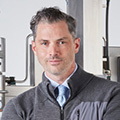 Aaron Furman – AF:
Aaron Furman – AF:
Is the Business Development Account Manager of Isolate Extraction Systems who possesses a wealth of knowledge in super-critical arbon dioxide (CO2) extraction equipment for the nutraceutical & pharmaceutical industries.

Justin Conger – JC:
Purchasing Manager and scheduling manager at Origin Nutraceutical, specializing in GMP compliant dietary supplements to the cannabis industry.
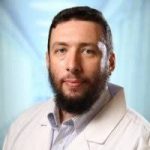 Arkady Uryash – AU:
Arkady Uryash – AU:
Director of Research Development at MCIG Group. An experienced scientist, director of research development and founder with a demonstrated history of working in the medical device industry. Skilled in U.S. Food and Drug Administration (FDA), intellectual property development, medical technology, cardiology, vascular medicine, biomaterials, and medical devices. A strong medical professional graduated from Baylor College of Medicine who is transferring his vast experience to cannabis industry.
What is CBD?
RR: CBD is the main cannabinoid found in hemp (fibre Cannabis), second (sometimes first) cannabinoid found in marijuana (drug Cannabis). Usually found at the 1 to 4% level in certified cultivars of hemp, but in Colorado some can be as high as 26% CBD. Think of it as marijuana with an upside-down cannabinoid ratio.
SP: CBD is a Cannabinoid or a plant compound called Cannabidiol and is found in the Cannabis Sativa L plants. Also known as Hemp, Marijuana, Weed, Ganja and a few other titles. CBD is only 1 of potentially hundreds of thousands Cannabinoids found in these plants.
AU: Cannabidiol (CBD) is a phytocannabinoid, most abundant non-psychotropic constituent of Cannabis and Hemp plant. CBD has been reported to exert protective effects in multiple diseases and carries an-apoptotic, an-inflammatory and an-oxidant effects. First isolated from Cannabis in 1940 by Roger Adams, the structure of CBD was not completely elucidated until 1963. There are four known side-chain homo-logs of CBD; methyl, n-propyl, n-butyl and n-pentyl groups. CBD does not target CB1 and CB2 receptors directly, does not increase VTA dopamine cell firing, and does not have inherent rewarding proper-es, but rather influencing CB1 receptor transmission by augmennge CB. While cannabidiol makes up 40 percent of the plants extract, it has none of the psychoactive effects as THC. CBD affects the endocannabinoid receptors, which are in both the central nervous system and the peripheral nervous system. Endocannabinoid receptors are very important as they function to maintain body homeostasis. The non-psychoactive substance affects endocannabinoid neurotransmitters, which in turn up-regulate and down-regulate the neural transmissions as needed to maintain homeostasis, helping keep the body in a normal and healthy state. In fact, unlike most pharmaceuticals that only stimulate up-regulation or down-regulation, CBD is unique in that it can balance both.
There are numerous medical claims regarding CBD, what ailments does it benefit?
RR: After thousands of studies, it has been proven effective at preventing or treating Acne, Alcoholism, Alzheimer’s Disease, ALS, Anxiety, Apnea, Arthritis, Asthma, Bone fractures, all Cancers, COPD, Depression, Diabetes, Dravet Syndrome, DTs, Eating disorders, Endometriosis, Epilepsy, Fibromyalgia, Free radicals, Glaucoma, Hangover, Heart disease, Huntington’s Disease, Infection, Infertility, Inflammation, Insomnia, Liver damage, Malaria, Migraines, MRSA/CVE infection, Nausea, Neuropathy, Obesity, Opiate addiction and withdrawal, Organ transplant, Pain, Pancreatitis, Parkinson’s Disease, Psychosis, PTSD, Rheumatoid Arthritis, Schizophrenia, Sickle Cell Anemia, Stroke, CTE/TBI (concussion), Tremors, and more.
SP: The most popularized disease it is unarguably helping are diseases like Epilepsy, Parkinson’s, Tremors, Seizers or most Neurological shaking disorders. Because we are witnessing the immediate effects of the convulsing stoping and the amount of attacks decreasing we do not need much more proof. However because the plant it comes from is still a schedule 1 substance in the United States not enough study has been done for this to be officially considered medically beneficial.
AF: CBD is an Antibacterial, cancer cell growth inhibitor that allows for Neuro-protection while Promoting Bone Growth & Reducing Seizures and Convulsions. CBD Reduces Blood Sugar Levels, Reduces Inflammation, Reduces Risk of Artery Blockage, Reduces Sm. Intestine Contractions, Reduces Vomiting & Nausea, Relieves Pain, Relieves Anxiety, Slows Bacterial Growth, Suppresses Muscle Spasms, Tranquilizing, Treats Psoriasis, Vasorelaxant.
JC: This is a common question we hear. The problem we have with answering it is that CBD is not a Drug and because the FDA has rules and regulations we cannot make claims as to what ailments it benefits. One thing to point out though is the research done by the US government. Pubmed.gov has hundreds of research articles posted for what they have used CBD in testing different diseases. They have research on Cancer, Epilepsy, Anxiety, Insomnia, Arthritis, Nerve damage, and hundreds more. Kinda funny when they say Hemp has no positive health benefits yet they spend millions researching it? Big Pharma has a hold on someone…
AU: CBD recently been shown to exert a tissue sparing effect during chronic myocardial ischaemia and re-perfusion and is cardioprotective. There are indications that CBD could reduce incidents of arrhythmia and contribute to reduction of blood pressure ‑ both significant benefits for patients with hypertension and Ca imbalance. Latest studies also show strong potential of CBD for stroke and sepsis. Recent academic publications describe successful results from using CBD as a treatment for pain, multiple sclerosis, inflammation, addiction, depression and anxiety disease models. On June 25, 2018 FDA has approved first CBD based drug (Epidiolex) to treat rare forms of epilepsy (Lennox‑Gastaut syndrome and Dravet syndrome).
CBD is also a rich source of fay acids and other nutrients that benefit skin and can be used in infused moisturizers and face scrubs to solve acne, help heal skin and reduce inflammaon, allowing dermis to regenerate faster and stay looking healthier longer.
The CBD industry also started producing products for pets with similar to human health conditions, such as pain, inflammation and anxiety, as well.
What is the current legal status of CBD within the United States?
RR: In theory, legal federally if from hemp grown in a hemp legal state under a reasrch program with an institution (or with a DEA 225 permit), meaning not including marijuana-derived CBD. DEA is permanently enjoined from enforcing CSA on cannabinoids found in hemp. That being said, even the Farm Bill noncompliant states like Colorado were left alone, so it was not enforced. With FDA it’s a little sketchier as it is not yet considered an ingredient pre-existing DSHEA nor has anyone yet certified it as GRAS or a NDI, but then again no one has yet done it for hempseed for food or oil either. FDA says it can’t be a dietary supplement since GW has an IND product using CBD, but FDA is wrong: use of CBD in products pre-dates GW’s IND application, pre-dates DSHEA, and pre-dates the FDA itself. We’ve been consuming CBD (and THC) for at least 12,000 years, via the resin stuck to the hempseed shell when used as food or oil, or by the use of flowers in foods and drinks (such as Bhang).
SP: The United States still considers CBD just like THC-9 a schedule 1 controlled substance. Currently we have quite a few federal legalization bills making Hemp legal which will allow us to begin to build the infrastructure to farm high CBD low THC-9 Cannabis genetics (also known as Hemp) completely legally creating a for profit industry in agriculture and manufacturing. The legalization of Medical Cannabis or Marijuana is separate but with our current administration passing the “Right to try” bill I believe by 2021 it will be legal and regulated with in the pharmaceutical industry.
AF: Grey Market legal at the Fed. Level and will continue to stay that course unless unification and education happen on a large scale country wide. My fear is that as long as doctors are prescribing MJ for “glaucoma” CBD will be looked at in a negative light. Truth be told, CBD oil can be turned into THC with a mix between time and chemicals bought at The Home Depot & if there is one thing Meth Addicts have taught me, where there is a will there is a way – CBD can be turned to THC with sulphuric acid, pressure and time.
JC: This is a debated grey area, Some states are pushing to create laws around CBD and some are creating laws to make CBD illegal. Hemp association vs DEA supreme court ruling basically states any hemp products imported into the country and sold to consumers must contain less than .3% THC. Currently there is a 2018 Farm Bill that is gaining traction and popularity that seeks to take hemp off of the controlled substances list and enable farmers to grow hemp across the USA again.
AU: There is widespread confusion over whether the CBD based products actually legal. CBD can be produced from either hemp or marijuana, therefore the legality of its producon and consumption can be complicated.
A 2014 farm bill legalized “industrial hemp” that contains 0.3 percent THC or less, contradicts narcotics laws that the Drug Enforcement Agency still upholds and prohibits marijuana in all its forms. Although cannabidiol derived from marijuana is federally prohibited, CBD derived from hemp can be legal on the State level and in specific instances. As a result, shops advertising low THC, no THC CBD or “hemp oil” products started to develop in many states throughout the US, but have faced pushback from law enforcement locally and federally. In addion, according to US Customs and Border Protecon Agency, imported hemp products (including hemp-derived CBD products) are legal as long as they “do not cause THC to enter the human body are therefore legal products.” Domesuc hemp, and the products made with it, however, are federally prohibited, with some excepons. CBD products can be made from legally grown domesuc hemp and sold inside the state that they were made in. CBD products made from state-legal marijuana plants, can also be legal if products are sold within the state.
The Cole memo has established some protecons for this process. The Cole Memo was a document originally drafted by former US Aorney General James M. Cole in 2013. Cole issued a memorandum to all US aorneys that was published through the Department of Justice on August 29, 2013. The memo indicated that prosecutors and law enforcement should focus only on the following priories related to state-legal cannabis operations:
- Preventing the distribuon of marijuana to minors;
- Preventing revenue from the sale of marijuana from going to criminal enterprises, gangs and cartels;
- Preventing the diversion of marijuana from states where it is legal under state law in some form to other states;
- Preventing state-authorized marijuana acvity from being used as a cover or pretext for the trafficking of other illegal drugs or other illegal acvity;
- Preventing violence and the use of firearms in the culµvaon and distribuon of marijuana; Prevenng drugged driving and the exacerbaon of other adverse public health consequences associated with marijuana use;
- Preventing the growing of marijuana on public lands and the aendant public safety and environmental dangers posed by marijuana producon on public lands;
- Preventing marijuana possession or use on federal property
However, Aorney General Jeff Sessions recently reemphasized that a marijuana prohibition remains in effect in all 50 states, refuang any protecons outlined in the Cole memo. As a result, to avoid prosecution, most cannabidiol products come with no specific medical claims or dosing recommendaons. When CBD products move across state lines, for both brick and mortar outlets as well as online stores, DEA has stated clearly that CBD products are illegal and that their vendors would be arrested, no excepons. The FDA has also issued a recent warning to enves selling cannabidiol products.
The DEA and FDA do not, however, touch on any excepons for domesuc hemp and previously menoned federal-exemption language in their statements and in February 2018 DOJ declared a ban on spending governmental money to develop and prosecute federal cases or interfere with state laws. The USDA considers hemp an agricultural product and has made its own statements about the product.
On the State level, just like alcohol, the legal age limit for consuming cannabis products is 21. Concurrently, it is also illegal to use or sell to someone under the legal age. This age restriction does not pertain to users of medical cannabis. Similarly being a party in the car accident while under influence of cannabis product will result in DUI charges. Addionally in many states only businesses that receive a license, regulated through the state government and prominently displaying their permits considered to be legal.
Obviously, for CBD to ever become mainstream, these federal agencies will have to get on the same page about its legality.
And legislation in Canada?
RR: Health Canada requires destruction of a billion grams of CBD per years by hemp farmers, throwing away 99 percent of potential value. That is supposed to change in July, when they can sell it to LPs and it’ll be taxed the same as THC. BTW, HC might be set to criminalize the hempseed oil industry, using 2 nano as the DUI cut-off. Studies show some oil is 117.5 ppm, causing a 49 nano THC positive.
SP: Canada is further ahead and should be legalizing Cannabis across the board this year. However, with Canada’s cold climate and government ran healthcare system private companies will have a hard time contracting with Health Canada and creating the margins for profitability.
AF: Canada is leading the way (behind Israel) in my eyes, they have accepted the benefits of CBD and continue to research and market the compound in a way that will ultimately benefit the world, from fight opiodes to combating seizures.
Europe is also plagued with uncertainty regarding the market. What is the current legislation there?
RR: Each country is different. I don’t see any hard enforcement in any, except maybe isolate in UK. CBD is grown and sold many places in many countries, and there are even franchise CBD stores in Italy. The smokable CBD hemp buds market has taken off like a rocket.
SP: Until we legalize and even beyond their can be no certainty just like any other industry out their. What the real fear needs to be is “What are you buying that says CBD on the label”? Because of the lack of regulation and quality control most products being sold do not contain CBD or even worse have poisonous ingredients. Their are about 11 synthetic Cannabinoids that have been make. One is called 5-Fluoro ADB and it has been found in vapes and other products that sent people to the hospital. This is why knowing where your end product is derived from and 3rd party testing is very important especially when talking about CBD or any medicines.
Australia has seen a recent breakthrough with regards to medial cannabis with much emphasis on CBD. How is patient access there?
RR: It appears Oz has started the process, but has been ham-fisted with its approach. It instead could have easily mandated domestic production thus jump-starting the industry, increase patient access, and have more control and tax opportunities. Part of legalizing for them, like other countries, is doing it in such a way as it doesn’t appear they lost the Culture War, and that they’ve not actually been intentionally lying through their teeth to us all for 81 years, even to this day. So they pretend it’s a dangerous, unproven substance instead of the reality of it being mankind’s oldest cultivated crop, used continuously around the world for millennia with no ill effects. Not even soya can say that: it makes one fart…
SP: Everything here comes down to what state or even city you go to. Nevada for example is the most regulated for profit industry of Cannabis. Even though medical Cannabis has been legal their since 2000 they did not allow non profit patient collectives to distribute commercially like California, Colorado, Washington and Oregon. In 2013 the legislation allowed for special licensing for, for profit businesses to open cultivation, production, testing and distribution companies under the medical program. In 2016 Nevadans voted for full legalization and those businesses were licensed in recreation as well. This was the first time a state had a full fledged corporatization of Cannabis. These products are regulated and tested from seed to sale with absolutely no basement or patient products on the shelves.
AU: Under the Australia Narcotic Drugs Act 1967 (the ND Act) a ‘drug’ includes all extracts of cannabis (including hemp) from cannabis plants. ‘Extracts’ do not include extracts from cannabis/hemp seed. The manufacture of a drug that includes (or is from) a cannabis plant, can only be authorized under a manufacture license in limited circumstances under the ND Act. Therefore extracts of cannabis (or hemp), or the manufacture of drugs from cannabis plants, may only be for the purposes of the governmentally licensed activities (clinical trials, medical treatments etc.) Extracts for food, cosmetics, veterinary use (including pet food) are NOT permitted. Cannabis, cannabinoids, cannabis resins, tetrahydrocannabinols, cannabis seeds, cannabis plants and parts of cannabis plants are Prohibited Imports under the Customs Regulaons and can not be granted an import permit, unless a State or Territory Health Department agency also authorizes/grants the applicant a permission to possess, hold or supply cannabis or its derivaves listed under Schedule 9 of the Poisons Standard. Therefore, under Australian law, Cannabis is a term used to describe a full range of varieties of the Cannabis genus and their about 60 cannabinoids regardless of them possessing or not psychoacve properes.
Hemp seed oil as defined by Poisons Standard is the oil obtained by cold expression from the ripened fruits (seeds) of Cannabis and is dis]nct from hemp oil that includes extracts from the flowering tops or leaves or any other part of the Cannabis plant other than the ripened fruit (seeds). Therefore, hemp seed oil products should not contain significant amounts of cannabinoids and if so not regulated. Alternavely, the presence of cannabinoids in hemp seed oil is considered to arise from either a contaminaon or adulteraon and therefore making it illegal.
In 2017 TGA Reclassified CBD Oil (Full spectrum CBD Oil extract) as Schedule four and must be prescribed and supplied by a Pharmacy. Prescribing Doctors need registraon under the Safe Access Scheme. Products need registraon with the TGA for use in a parcular Therapeuc use. According to 2017 amendments to regulaons CBD in preparaons for therapeuc use containing two percent or less of other cannabinoids in a plant or in hemp seed oil for purposes other than internal human use or containing 50 mg/kg or less of total cannabinoids when labelled with “Not for internal use”. Currently in Australia Hemp CBD is scheduled for therapeuc internal or external use and TGA stops sales at the levels of concentraon in the non-prescription product range. 100 mg of Hemp CBD per 30 ml means that it is approximately 66 times stronger than allowable dosage for use externally and sale without a prescripon. This means that at present under the TGA Schedule four ruling company
cannot register their CBD product as a Dietary Supplement in Australia because of the concentraons of total cannabinoids including Hemp CBD.
On prescripon market situaon is not beer either. There are only 23 doctors in Australia that could write a prescripon for medical CBD products, which is about one doctor per one million people. 21 of those doctors are pediatric neurologists and authorized specifically to prescribe to children with neurological condivons. That means paents with other condivons, for example terminal cancer, cannot access medical cannabis through these authorized prescribers. Due to legal uncertainty and only 35 cannabis licenses issued, there’s still no domesuc product available and imported medicine is geng stockpiled in warehouses, as only 525 pañents, out of an esmated 100,000 who use cannabis, have been permied to access it.
These recent changes in legisla]on means it’s very difficult for Australians to legally get access to high quality CBD unless they jump through a mulµtude of administrave hoops and suffer from one of the limited number of specified condivons.
In this situation companies started to collaborate with academic insvtuon to access governmental subsidies for clinical trials and fast path to licensing despite the fact that this process may take years to complete. The companies in Australia, that currently involved in medical CBD trials include: Ecofibre, Tilray, Bedrocan, Eco Pharmaceuucals BV, GW Pharmaceuucals and Trigal Pharma.
Currently, retailers cannot make medical claims regarding CBD. What should consumer/patients know about CBD beyond being a supplement?
RR: Actually, in the US, retailers operating wholly intRAstate have an argument for making claims, but interstate manufacurers or distributors can’t. FDA isn’t supposed to have non-interstate jurisdiction, but I remember in the ’80s when they would raid little health food stores, guns drawen, over this same issue. DSHEA 1994 fixed that a bit. Medical value, see conditions above.
SP: Let me start with “I am not a physician”. Because of the lack of official medical trials no one can answer this. We witness the positive effects that we can see which makes the benefits visible. What about diseases we do not see? Pain management, depression, ADHD and many
others. I have known many people switch from prescription drugs to Cannabis. We may not be able to answer this question definitively but the anecdotal evidence is profound. Also “What about the hundreds if not thousands of other Cannabinoids found in the plants”? CBD and THC-9 have gotten most of the attention. How about CBN, CBC, CBG, THC-V? Their has been a little over 250 discovered and our top laboratories can test for about 15 of these Binoids. This is the separation or synthetics and organic compounds. If you have an “isolated” compound I would be very cautious that it is not derived from a plant but was made in a lab synthetically. Again this is why quality control is so important.
AF: I cant speak for the world, but, I personally make medical balms and vape cartridges that eleviate pain, arthritis, treat fatigue and tissue damage, as well as help me minimize anxiety and panic attacks that I have suffered from since I was a child.
JC: For medical value I think it is best if people do their own research. Often when people start using CBD they don’t notice a difference immediately but looking back on the day or week they notice something is different.
What are the differences between Hemp CBD and Cannabis CBD, if any?
RR: Hemp is also Cannabis genus. The only difference between hemp and marijuana is chemotype, hemp is <0.3% THC in the US and Canada. Marijuana CBD likely has more THC than hemp-derived, but that’s easily corrected by componding or adding THC to a hemp CBD product. Otherwise, molecules are molecules. The upside for deriving CBD from hemp instead of marijuana is interstate distribution is legal if hemp-derived. In Colorado and elsewhere, high-CBD hemp is bred, grown under lights using nutes, harvested, extracted, and packaged like marijuana by mostly ex-marijuana growers. 1/3 of Colorado hemp licensees are indoors. The field hemp many think of is low in CBD (1-4%), and grown completely different than the horticultural marijuana. Don’t believe those who say they extract CBD from hemp stalks, it’s a legal fiction eliminated by the Farm Bill protections.
SP: Honestly it comes down to genetics and legality. The ONLY difference between the 2 is one is more legal than the other. You can have a genetic that will produce .24% THC, 13% CBD (along with other Cannabinoids), this would make your product a Hemp. If you have a plant that produces 10% THC-9 and 4% CBD you would have medical Cannabis, Marijuana, Weed, Ganja crop. The biggest secret in our industry is that their is no “magical CBD” it takes 10’s of thousands of acres, millions in processing equipment and real experience to create the supply to meet the current demand. The stoniest move the Cannabis industry made was creating an entire retail market filled with untested falsely labeled products leading the majority of unknowing consumers. Now we have thousands of small businesses that do not have a proper supply of the ingredients they have been claiming and selling. As legalization and regulation get closer consumers are being better informed about this and the game is about to change.
AF: None accept a legal definition regarding THC content.
JC: The main differences are the plant they come from and the THC content.
CBD is currently seen as a commodity in demand, particularly with isolate. What exactly is CBD isolate?
RR: It is CBD oil distilled to ~99% CBD, nothing else. It’s a crystalline powder.
SP: Isolate is an “isolated” molecule or compound. I am not a compound pharmacist and do not endorse isolate for the reasons above. I do not support what has got to be mostly synthetics with my knowledge of the wholesale and manufacturing parts of this industry. It can be googled next question.
AF: CBD “isolate” is a hot word regarding a process. In my honest, no BS opinion, it’s a way for lazy people to make money off of the labor of those that wish to help. Isolate is a process in which the plant is turned into a raw oil via the help of CO2 extraction equipment like the IES CDMH.20-2X-2F, it then goes into post process refinement (cyro freeze with the introduction of alcohol), it then goes into a rotovape wash, then into distillation (Root Science has some great equipment), it then goes into liquid chromotography, it then goes into a silica siv to pull the cyrstaline CBD form in a pure level.
And what is isolate used for?
RR: It is used to add CBD to a product, either compounded with other cannabinoids to achieve full-spectrum, or not. It’s popular with manufacturers because it is so much easier to work with, a tasteless powder versus a sticky spicy viscous oil. Especially for one of the main markets for it, vape cartridges.
SP: It shouldn’t be.
With such huge demand factoring against a restricted output, how much isolate would an average harvest generate?
RR: Depends on % CBD in the field. Once CO2 extracted then fractional distilled, it has a low % of starting material yield. Much more will have to be grown if isolate keeps growing, either marijuana (distill to also recover the THC) or hemp.
SP: Anyone that claims they can answer this question is giving their opinion. I have heard of an acre only producing 26 kilos and when the demand is already what it is that is not profitable for anyone. It all depends on the genetic you begin with, grow time, soils, light, processing equipment and many other factors. We have not grown enough of this plant for 100 years this is part of the research and development we need. Most of this information is proprietary to businesses and is the future of these companies value.
With a lot of false product out there, what is the process with testing purity
RR: Is it synthetic or is it derived from non-Cannabis sources? We can’t differentiate easily between those yet, except maybe with stereoimaging. But like dealing with fake LOIs and POFs and COAs, it comes down to character which will define their integrity. Bad people think nothing of forging labs and documents.
SP: Their is none. My new product line Purple Leaf Hemp is made from organic hemp grown on a licensed and regulated farm. We use an all natural old fashion recipe that simply infuses Cannabinoids with coconut oil and dosed in a 500mg capsule. 10mg per serving of 7 spectrum hemp oil. Every batch we make is tested by DB Labs an ISO accredited and regulated Cannabis testing laboratory in Las Vegas, NV. I would advise any consumer to ask for the companies 3rd part lab results before purchasing. Also, if a product is not made in a state that has legalized Hemp or Marijuana for profit in the United States and tested by a Cannabis specific 3rd party laboratory I would say “Buyer Beware”. You can always call the lab and verify the document is not a fraud either. Many of those in the wholesale space.
What is the difference between CBD oil from isolate and full spectrum CBD oil?
RR: Cannabinoid content and ratios. Oil is used to make isolate.
SP: Isolate is a single or “isolated” compound. Full spectrum is suppose to mean whole plant but actually we can only test for 15 cannabinoids so “full spectrum” is an inaccurate term. How many Cannabinoids are showing up in your test? We can not test the “full spectrum” but I can show you that Purple Leaf Hemp’s 7 spectrum oil has 7 Cannabinoid compounds because that is what the plant produced with our genetics and process. This is another huge fault of the “CBD” product industry. I laugh every time I see an advertisement that says “Full spectrum CBD isolate’!!! Well either you are 1 single isolated substance or you have “full” or more than 1 compound. Pick one because you can not have both.
AF: “Full spectrum” means you are getting the whole plant. This does not mean that there will be THC in the product, but there will be more than just CBD. The cannabis plant has more cannabinoids than only CBD and THC. There is also CBDA, CBG, CBC, and more. The hemp plant is also rich in minerals, fibers & proteins, giving even more added benefits. Various Cannabinoids within the Cannabis Plant: CBD: Antibacterial, Inhibits cancer cell growth, Neuro-protective, Promotes Bone Growth, Reduces Seizures and Convulsions, Reduces Blood Sugar Levels, Reduces Inflammation, Reduces Risk of Artery Blockage, Reduces Sm. Intestine Contractions, Reduces Vomiting & Nausea, Relieves Pain, Relieves Anxiety, Slows Bacterial Growth, Suppresses Muscle Spasms, Tranquilizing, Treats Psoriasis, Vasorelaxant. CBDA: Reduces Inflammation & inhibits cancer cell growth. CBG: Aids sleep, inhibits cancer cell growth, promotes bone growth, slows bacterial growth. CBGA: Reduces inflammation, relieves pain, slows bacterial growth. CBC: Inhibits cancer cell growth, promotes bone growth, reduces inflammation, relives pain. CBCA: Reduces inflammation, treats fungal infection. Delta9-THCA: Aids Sleep, inhibits cancer cell growth, suppresses muscle spasms. Delta8-THC: Relieves Pain. THCV: Reduces Convulsions and Seizures, promotes bone growthHaving access to more than just one cannabinoid will enhance CBD through the “Entourage Effect”.In laymen terms this means that CBD has been known to work better when accompanied by other cannabinoids. CBD isolate is when growers separate CBD from other cannabinoids, acids, and chemicals found in the hemp plant. In it’s purest form it is extremely well tolerated and effective in helping with: Pain, Inflammation, Mood, and General health. In my opinion you are getting more benefits from full spectrum.
JC: Some of the drawbacks that people dispute between full spectrum and isolate is the Full Spectrum is believed to provide additional benefits that come from other components of the plant.
There are various reports of synthetic CBD spreading across the United States, what it is synthetic CBD and what are the dangers?
RR: 4-CCB is what sickened people in Utah, the draconian laws there forced an unscrupulous business to use the synthetic instead of CBD, thereby endangering thousands. It is a completely unregulated or scheduled poison, while people growing a safe nontoxic plant are imprisoned.
SP: All you have to do is Google “Synthetic Cannabinoids” and what you will read will blow your mind. Their are many dangers when consuming untested products and not knowing it’s exact source. This is a global issue. I encourage every consumer to ask questions and do their do diligence. If a company has an unlimited supply of products I would be very skeptical as we have grown very limited high CBD Hemp in the US and abroad. Lot’s of people talk about China and receive ingredients from there. If you actually do the research 90% of their Hemp crops are used for fiber and textiles so where is all the CBD isolate coming from? If a consumer is purchasing g this product for a medicinal purpose I would recommend before use sending a sample to a lab like DB Labs in Las Vegas and get your own test before use.
(307)

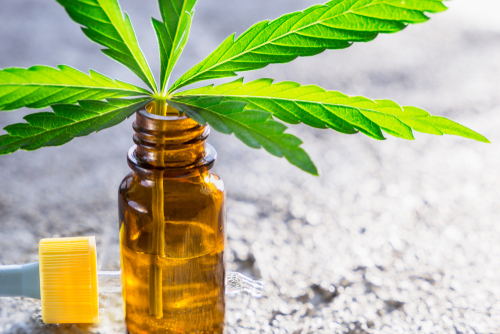
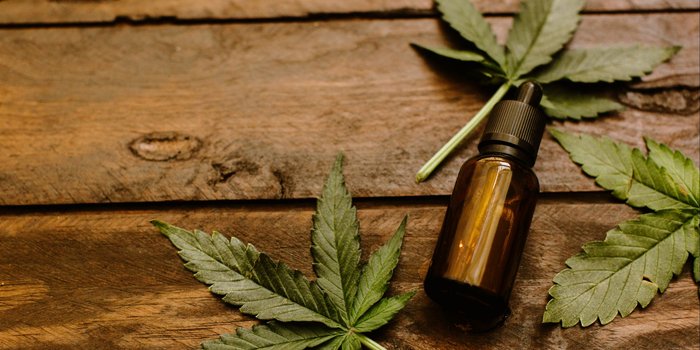
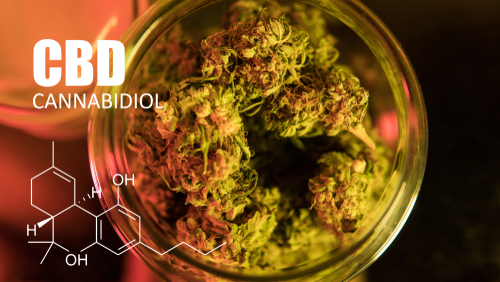
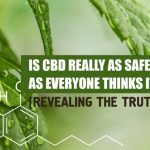
Leave A Reply